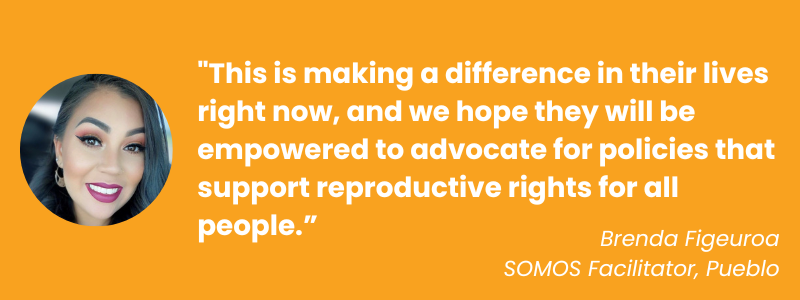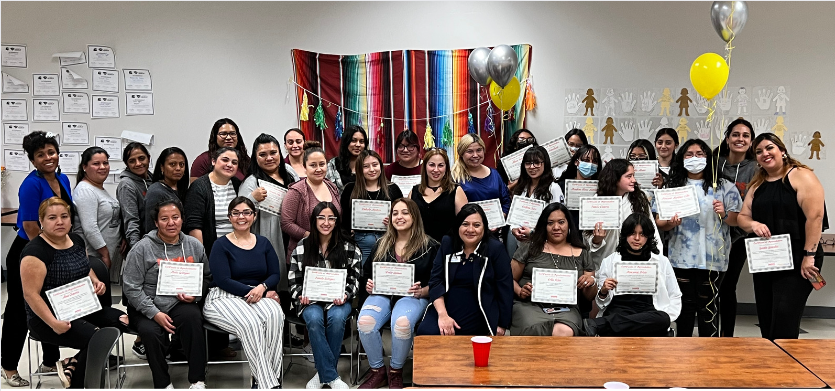Over the past three months, two groups of middle and high school Latina youth and many of their caregivers met one evening a week to participate in the SOMOS pilot program. SOMOS aims to increase understanding about sexual and reproductive health, while strengthening the ability of youth and caregivers to connect in healthy conversation, as well as inspire Latinas to advocate for themselves.
SOMOS, “we are” in Spanish, was created through a human-centered design process supported by the Caring for Colorado and the Colorado Health Foundation. The design process involved more than 300 interviews with young Latinas and caregivers in Pueblo and Adams counties, exploring their life goals, and the supports they have, and then exploring the topics of sexuality, intimate relationships, and contraception.
Cohorts of 30 participants in Adams County and 31 in Pueblo – about equal parts of middle schoolers, high school students, and caregivers – recently celebrated completion of the SOMOS program with graduation ceremonies. “We held class for SOMOS in Pueblo every Friday evening. The girls prioritized SOMOS, working out their schedules around the class. Can you imagine teens devoting their Friday nights to a class about reproductive health,” exclaimed Brenda Figueroa, who facilitated the SOMOS program in Pueblo.
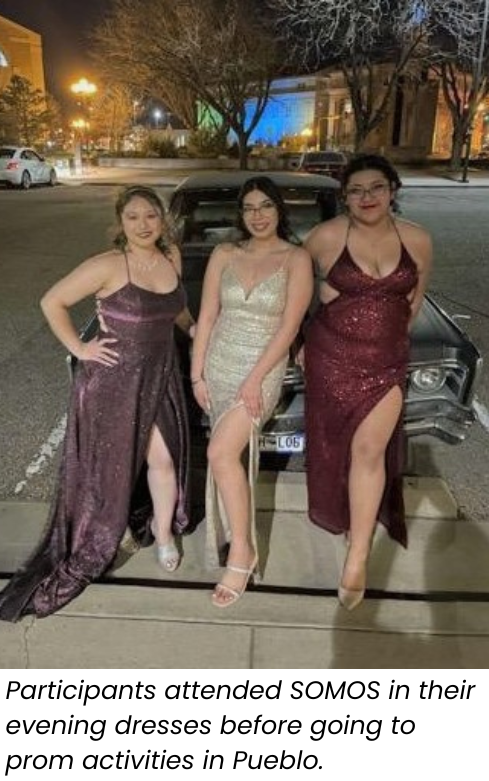
“One class fell on the same night as the high school prom. We had girls show up in their prom dresses, their hair all done up and in high heels. They went out to dinner before class and then went to the dance after the class.” They were devoted, says Figueroa, because it’s not your usual program. “Knowing that they made the program, through the human-centered design process, meant the program content was what our youth specifically said they needed and wanted to know more about.”
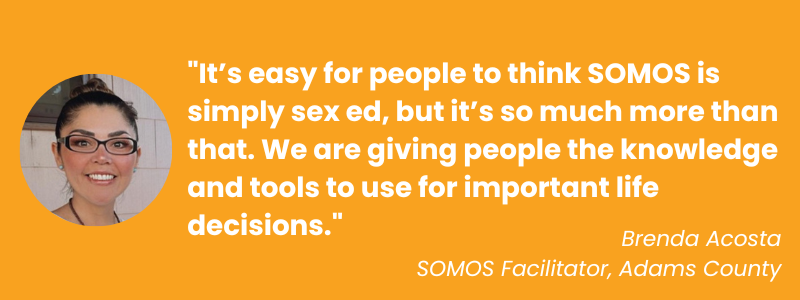
The SOMOS curriculum included learnings and discussions about communication, reproductive anatomy, mechanics of sex, contraceptives, LGBTQ+ and gender identities, boundaries, consent, self-autonomy, and more.
“It’s easy for people to think SOMOS is simply sex ed, but it’s so much more than that. We are giving people the knowledge and tools to use for important life decisions,” said Brenda Acosta, who facilitated the SOMOS program in Adams County. For example, Acosta said, “We talked about communications throughout the program. After practicing what we had talked about, one mom in my SOMOS class said, ‘Now when my daughter or son wants to talk, I stop and take the time to really listen. This makes the kids want to talk more, to say more. I feel awesome about it and can tell this approach is making a difference.’ We’re seeing SOMOS help to reduce barriers between youth and adults and create family unity.”
“We also saw community building,” Figueroa says. “These individuals came in to SOMOS and didn’t know each other. They built relationships – the girls exchanged phone numbers and snapchat, said “hi” to each other in school and started hanging out. They were able to express themselves in this setting in ways that they can’t in other places and all of them created community and friendships.”
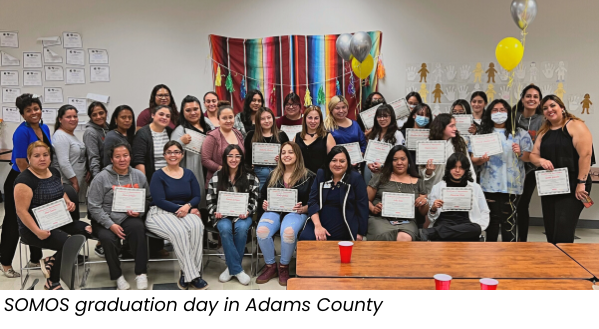
Facilitators, community advisors, and SOMOS participants are providing feedback to evaluators following completion of the SOMOS pilot. Both Brenda Acosta and Brenda Figueroa say their communities are hungry for more SOMOS programming. “Everyone who took part in SOMOS talked about it with their extended families and friends, and many of the moms said they would love for their sons to be able to participate and to engage dads,” said Acosta. “I honestly believe that this is a necessity not only in the Latino community but in the broader society.”
